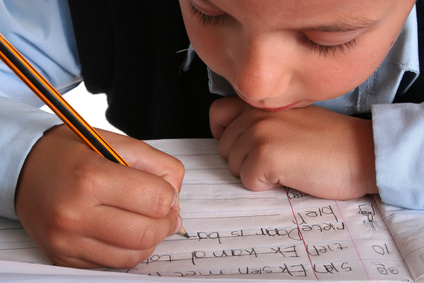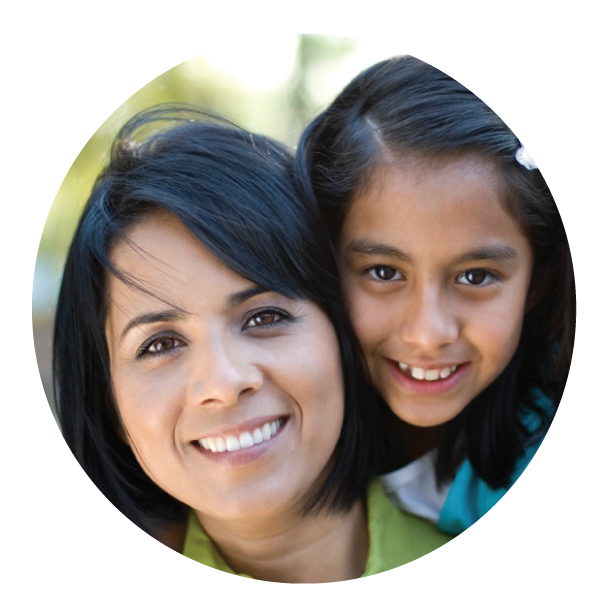What is Dysgraphia?

What is Dysgraphia?
Dysgraphia basically means “difficulty with writing.” The term Dysgraphia is also sometimes used to describe an expressive writing disorder or difficulties putting thoughts to words when writing. Children that have Dysgraphia or an expressive writing disorder will find any sort of written composition to be an arduous process and may have troubles constructing sentences and paragraphs in a grammatical or logical arrangement.
Does my child have Dysgraphia?
Some common symptoms are:
- Handwriting is illegible
- Child writes very slowly and gets fatigued easily
- Fingers are cramped in a tight grasp or child uses an unusual grasp
- Written work is inconsistent with a combination of upper and lower case letters, variation in sizes of letters and irregular formation and slant
- Child uses a lot of cross-outs and erasures while writing
- Child has difficulties keeping the writing on line or within margins
- Child has many reversals of letters and numbers, writes words backwards, writes letters out of order, and has very sloppy handwriting
How does Dysgraphia affect my child’s learning?
Dysgraphia leads to problems with spelling, poor handwriting, and putting thoughts on paper making the act of writing extremely difficult and affecting children both emotionally and academically. These children have extreme difficulty expressing ideas and completing assignments.
The child’s inability to control and coordinate the functions needed for written language often results in poor grades. Students with Dysgraphia are frequently labeled as lazy or unintelligent causing them extreme frustration and low self-esteem.
How can a child with Dysgraphia get help?
Remediation and accommodations are the most important elements in helping a student with Dysgraphia.
Most problems can be prevented with early intervention and early training. Young children in kindergarten and first grade should learn to form letters correctly using a multisensory writing program. Using auditory, visual and kinesthetic memory is powerful in training the brain of a child with Dysgraphia.
Dysgraphia can be treated using the Orton-Gillingham approach, which is a structured language program that provides focused instruction on multiple aspects of letters and letter formations.
How The PRIDE Reading Program Works?
The final element of the PRIDE System is that we act to increase intrinsic motivation and resultant self-esteem with every second of interaction. This means that our students feel approval and accomplishment because they know we like them — and admire their efforts and their perseverance. Every student at PRIDE becomes a reader.
To Learn More and Get Started, Give PRIDE A Call: 1-866-774-3342
How To Get Help And What To Expect?
Step 1:
Contact PRIDE by phone: 1-866-774-3342
You can also contact us by email (info@pridelearningcenter.com). Our Director will be glad to talk with you and can answer any questions you may have about the program and staff.
Step 2:
Sign Up for the PRIDE Reading Program and request your preferred schedule with the PRIDE Director. The PRIDE Director will work with you to identify your child’s specific needs and choose a PRIDE Reading Specialist based on the information provided.
Step 3:
Your PRIDE Reading Specialists first visit to the home will identify your child’s placement in the PRIDE Reading Program. The PRIDE Reading Specialist will then order your PRIDE Reading Program materials to be delivered to your home. The PRIDE Director also receives the placement information. Depending on information received from the placement, the PRIDE Director may contact you to create a personalized learning plan best suited for your child.
Step 4:
Your PRIDE Reading Program materials arrive at your home. The PRIDE Reading Specialist will prepare the PRIDE Reading Program materials based on your child’s personal needs. Your child begins receiving instruction.
Step 5:
Parents receive progress updates at every instructional step of our program. Our dedicated PRIDE Reading Specialists and staff is committed to seeing every child succeed, and will support you at all times. Failure is never an option, and we are so committed to our families that younger siblings are frequently enrolled because they see the excitement of an older brother or sister and want to begin with us. We are proud of every referral we receive from a teacher, friend, neighbor and classmate of someone who succeeded at PRIDE Learning Center.






